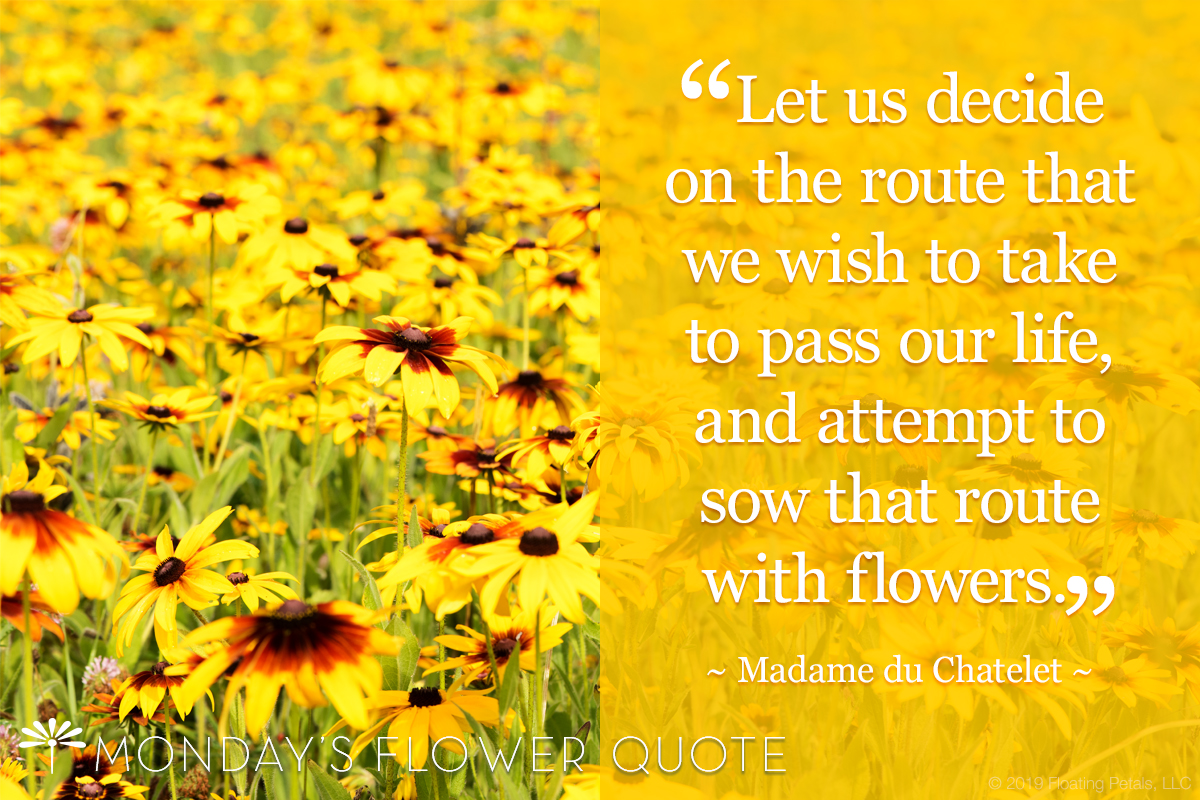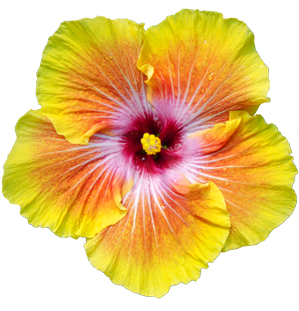
MY TWO CENTS
Let us decide on the route that we wish to take to pass our life, and attempt to sow that route with flowers… The first part is the contemplative part; the part that is about choosing what kind of person you want to be and what kind of life you want to live. It takes thought, effort and work. It means not living day to day, but consciously making a choice on who you want to be, so that life doesn’t pass you by. Once you have made that decision, you can starting sowing the seeds of the flowers you wish to grow along your route.
After reading this quote many times and contemplating it, it creates a vision for me to want to create a path that follows me with all sorts of lovely and vibrant blooms. I know there will be weeds, but I hope to work on pulling those weeds and replacing them with seeds of more blooms of kindness, caring and compassion. What about you?
ABOUT THE AUTHOR
Du Châtelet’s resume is incredibly impressive, let alone that she accomplished all of this as a woman in the 1700’s:
Gabrielle Émilie Le Tonnelier de Breteuil, Marquise du Châtelet (French pronunciation: [emili dy ʃɑtlɛ] (About this soundlisten); 17 December 1706 – 10 September 1749) was a French natural philosopher, mathematician, physicist, and author during the early 1730s until her untimely death due to childbirth in 1749. Her most recognized achievement is her translation of and commentary on Isaac Newton’s 1687 book ‘Principia’ containing basic laws of physics. The translation, published posthumously in 1759, is still considered the standard French translation today. Her commentary includes a profound contribution to Newtonian mechanics—the postulate of an additional conservation law for total energy, of which kinetic energy of motion is one element. This led to her conceptualization of energy as such, and to derive its quantitative relationships to the mass and velocity of an object.
Her philosophical magnum opus, ‘Institutions de Physique’ (Paris, 1740, first edition), or ‘Foundations of Physics’, circulated widely, generated heated debates, and was republished and translated into several other languages within two years of its original publication. She participated in the famous vis viva debate, concerning the best way to measure the force of a body and the best means of thinking about conservation principles. Posthumously, her ideas were heavily represented in the most famous text of the French Enlightenment, the ‘Encyclopédie of Denis Diderot’ and ‘Jean le Rond D’Alembert’, first published shortly after Du Châtelet’s death. Numerous biographies, books and plays have been written about her life and work in the two centuries since her death. In the early 21st century, her life and ideas have generated renewed interest. [1]
[1] Wikipedia: https://en.wikipedia.org/wiki/Émilie_du_Châtelet
FEATURED FLOWER
Gloriosa Daisy. Photographed in My Wildflower Garden.
previous post next post
- Archives

- January 2020
- December 2019
- November 2019
- October 2019
- September 2019
- August 2019
- July 2019
- June 2019
- May 2019
- April 2019
- March 2019
- February 2019
- January 2019
- December 2018
- November 2018
- October 2018
- September 2018
- August 2018
- July 2018
- June 2018
- May 2018
- April 2018
- March 2018
- February 2018
- January 2018
- December 2017
- November 2017
- October 2017
- September 2017
- August 2017
- July 2017
- June 2017
- May 2017
- April 2017
- March 2017
- February 2017
- January 2017
- December 2016
- November 2016
- October 2016
- September 2016
- August 2016
- July 2016
- October 2015
- September 2015
- August 2015
- July 2015
- June 2015
- May 2015
- April 2015
- March 2015
- February 2015
- January 2015
- December 2014
- November 2014
- October 2014
- September 2014
- Categories

- Autumn
- Bees
- Botanical Gardens
- Bulbs
- Butterflies
- Contests
- Cutting Room Floor
- Dirt
- Featured Flowers
- Featured Garden
- Featured Gardens
- Floating Petals
- Floral Travels
- Flower Gifts
- Friday's Flower Fact
- Gratitude
- Herbs
- Holidays
- Inspiration
- Latest News
- Lessons From Flowers
- Monday's Flower Quote
- My Garden
- Photography
- Seasons
- Seeds
- Spring
- Summer
- Tidbits
- Uncategorized
- Weather
- Weeds
- Wildflowers
- Winter









